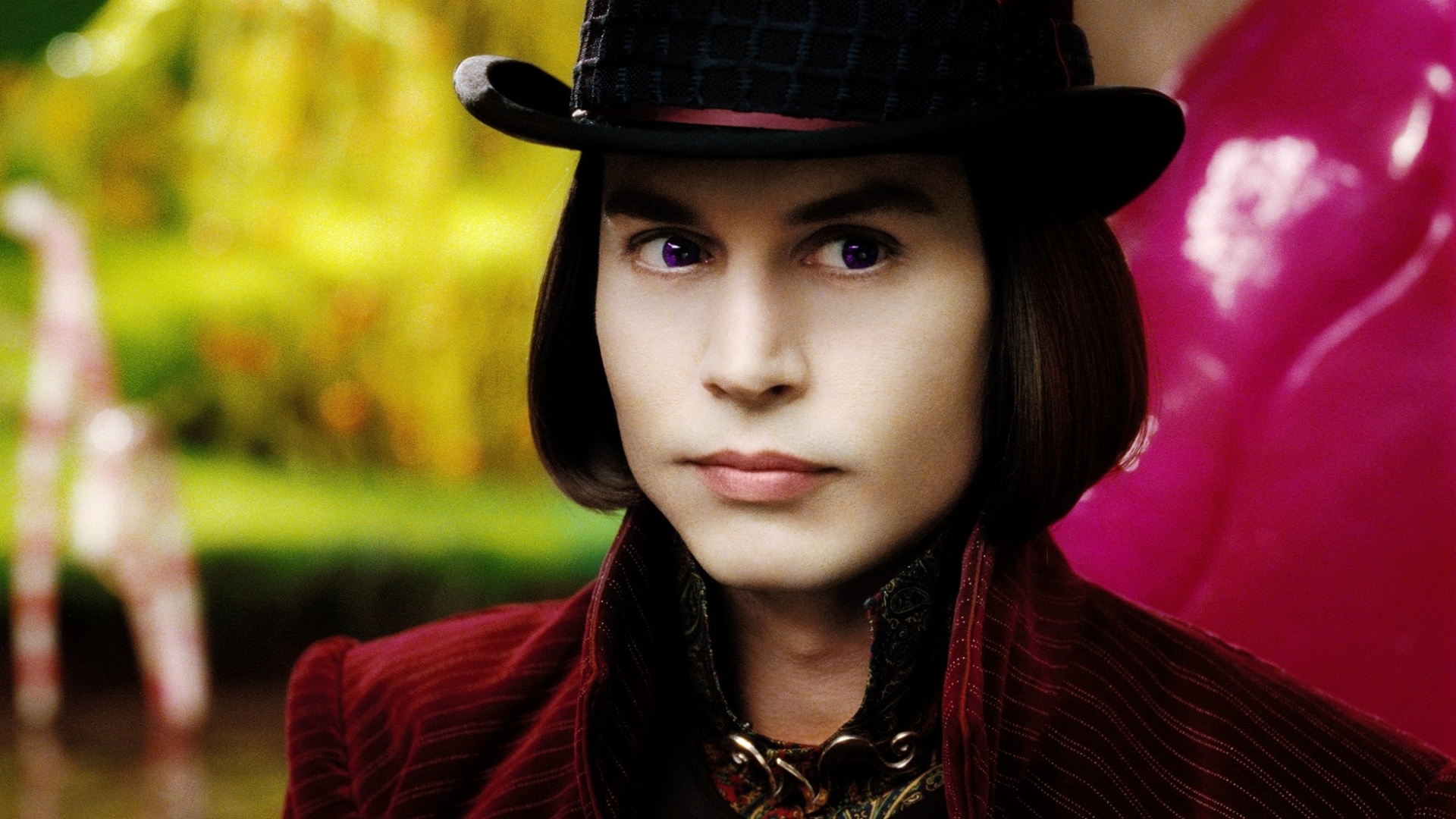Unveiling the Enigmatic Tale Behind Willy Wonka
Willy Wonka, an iconic figure in children's literature, has captured the hearts of countless readers with his whimsical chocolate factory. However, beneath the vibrant veneer of "Charlie and the Chocolate Factory," lies a tale of darkness and complexity. Author Roald Dahl drew inspiration for Wonka from a real-life chocolatier, J.M. Cadbury, known for his eccentric and sometimes cruel demeanor. Cadbury’s harsh practices, such as firing employees for tasting chocolate or enforcing extreme measures to safeguard his recipes, reflect a darker reality that influenced Wonka's character. While Wonka's portrayal in the story may not mirror Cadbury's extremities, elements of manipulation, control, and danger persist, revealing a multifaceted personality that challenges the innocence of his world.
Wonka's character, riddled with flaws, serves as a reminder of the dual nature of beloved figures. It encourages us to critically evaluate the media we consume and to recognize the underlying messages it conveys.
Read also:Exploring Hdhub4u Your Gateway To Hollywood Entertainment
Exploring the Shadows of Willy Wonka's Legacy
The complexities of Willy Wonka's story weave a tapestry of manipulation, control, peril, eccentricity, secrecy, and tragedy. Here's a deeper dive into six pivotal aspects that define this enigmatic character:
- Manipulation: Wonka expertly wields his power to steer the children toward his desired outcomes.
- Control: His obsessive need for authority is evident in both his factory management and interactions with others.
- Danger: The perilous nature of his factory reflects his willingness to place children in harm's way.
- Eccentricity: His unpredictable behavior adds an air of mystery, making him both intriguing and unsettling.
- Secrecy: Wonka’s penchant for concealment shrouds his life in intrigue and suspicion.
- Tragedy: Despite his successes, Wonka remains a lonely figure unable to attain genuine happiness.
These elements paint a vivid and unsettling portrait of Willy Wonka, highlighting the complexities that define his character. His story serves as a cautionary tale about the dangers of unchecked power and the importance of empathy and self-awareness.
1. The Art of Manipulation
One of the most unsettling aspects of Willy Wonka's character is his adeptness at manipulation. He employs his influence to control the children, particularly Charlie Bucket, the protagonist who wins the golden ticket to visit the factory. Wonka subjects Charlie to a series of perilous and humiliating challenges, all in pursuit of identifying a worthy successor to his chocolate empire. This manipulation extends beyond Charlie, encompassing the other children who visit the factory. Wonka coerces them into consuming bizarre and exotic confections, exposing them to strange and terrifying experiences solely for his amusement. His disregard for their well-being underscores a cruel and selfish nature, raising critical questions about the ethics of power and the necessity of safeguarding children from exploitation.
2. The Tyranny of Control
Wonka's insatiable need for control is a cornerstone of his dark narrative. His micromanagement of the factory operations and his ruthless treatment of employees exemplify this trait. Wonka demands absolute authority over every detail of his factory's functioning, firing workers with impunity for even minor infractions. This authoritarian approach stems from his insecurities and fear of losing power. The consequences of his controlling tendencies are dire, fostering a hostile work environment and leading to numerous accidents and mishaps. His singular focus on maintaining control blinds him to broader perspectives, ultimately contributing to the downfall of his enterprise. This aspect of Wonka's character highlights the dangers of unchecked power and the significance of humility and self-awareness in leadership.
3. The Perilous Realm of Wonka's Factory
A central and deeply troubling feature of Willy Wonka's story is the inherent danger of his factory. Wonka exhibits a cavalier attitude toward the safety of both the children and his employees, placing them at risk to satisfy his whims. This is evident in the perilous scavenger hunt he orchestrates through the factory and the harmful side effects of the exotic candies he forces the children to consume. His business practices further exacerbate the peril, as he employs child labor and resorts to underhanded tactics to outmaneuver competitors. The hazardous conditions within the factory, complete with boiling chocolate, sharp machinery, and exposed electrical wires, underscore Wonka's negligence toward safety. The consequences of his actions are severe, impacting both the children and his workers, and serve as a stark reminder of the ethical responsibilities that come with wielding power.
- Title of Facet 1: Wonka's Neglect of Children's Safety
Wonka consistently demonstrates a blatant disregard for the safety of the children who visit his factory. His willingness to send them on dangerous missions and expose them to harmful substances reveals a troubling lack of concern for their well-being. This pattern of behavior is a defining aspect of the dark narrative surrounding Willy Wonka.
Read also:
- Exploring The World Of Jellybeanbrains A Notable Onlyfans Creator
- Title of Facet 2: Wonka's Ruthless Business Ethics
Wonka's business practices are marked by ruthlessness and a willingness to engage in unethical behavior to secure his dominance in the chocolate industry. His exploitation of child labor and sabotage of competitors reflect a moral compass that prioritizes profit over principle, adding to the darker elements of his character.
- Title of Facet 3: The Hazardous Environment of Wonka's Factory
The factory itself is a perilous domain, replete with dangers that underscore Wonka's negligence. The lack of safety measures and the presence of hazardous machinery highlight his failure to prioritize the well-being of his workers and visitors, reinforcing the sinister aspects of his character.
- Title of Facet 4: The Impact of Wonka's Actions
The consequences of Wonka's reckless actions are profound, affecting both the children and his employees. Incidents such as Augustus Gloop's near-drowning and Violet Beauregarde's transformation into a giant blueberry illustrate the tangible harm caused by his disregard for safety. These events serve as a grim testament to the darker realities of Wonka's world.
These facets collectively illuminate the perilous nature of Wonka's factory and his willingness to place others at risk for personal gain, further enriching the dark narrative of his story.
4. The Enigma of Eccentricity
Willy Wonka's eccentricity is a defining characteristic that adds depth and intrigue to his persona. His unpredictable behavior often leads to misunderstandings and conflicts, complicating his relationships with others. His difficulty in navigating social interactions, combined with his obsessive focus on his work, creates a barrier between him and the world around him. This eccentricity manifests in various ways, including his childlike demeanor, lack of empathy, and secretive nature. These traits make Wonka a complex and often misunderstood figure, whose quirks belie deeper flaws that impact both his personal and professional life.
- Title of Facet 1: Wonka's Social Awkwardness
Wonka's struggles with social interaction often result in inappropriate or offensive behavior, alienating him from others and fostering a sense of isolation. This social ineptitude contributes to his loneliness and further complicates his relationships.
- Title of Facet 2: Wonka's Obsessive Nature
Wonka's obsession with his work overshadows his personal life, leading to neglect and a lack of understanding from those around him. His secrecy and reluctance to share his thoughts or feelings exacerbate mistrust and suspicion, deepening the mysteries surrounding his character.
- Title of Facet 3: Wonka's Childlike Behavior
Wonka's childlike tendencies often lead to underestimation by others, who fail to fully grasp the complexity of his character. This behavior, coupled with his lack of awareness of consequences, adds another layer of unpredictability to his interactions.
- Title of Facet 4: Wonka's Emotional Disconnect
Wonka's apparent lack of empathy makes it challenging for him to connect with others on an emotional level. This disconnect fuels misunderstandings and conflict, reinforcing his isolation and highlighting the darker aspects of his personality.
These facets of Wonka's eccentricity reveal a character whose quirks are not merely charming but deeply impactful, shaping both his life and the lives of those around him.
5. The Veil of Secrecy
Secrecy is a defining trait of Willy Wonka, contributing significantly to the enigmatic and dark nature of his story. Wonka's reluctance to share his thoughts and feelings stems from a desire for privacy and a fear of judgment. His secretive demeanor also serves to maintain control over his life and his company, creating an aura of mystery that captivates and intrigues. However, this secrecy has negative repercussions, fostering isolation and mistrust. Wonka's inability to open up to others hinders his ability to form meaningful relationships, leading to a life marked by loneliness and suspicion. Ultimately, his secrecy underscores the tragic elements of his character, adding depth to the dark narrative of his story.
6. The Tragic Dimensions of Wonka's Life
At the heart of Willy Wonka's story lies a profound sense of tragedy. Despite his success in the chocolate industry, Wonka remains a deeply unhappy and unfulfilled individual. His loneliness is palpable, as he lacks close relationships and remains isolated from the world. Wonka's perfectionism, need for control, and unresolved emotional baggage all contribute to his inability to find genuine happiness. His tragic flaw lies in his inability to reconcile his past and emotions, leaving him trapped in a cycle of dissatisfaction and despair. Wonka's story serves as a poignant reminder that material success and professional achievement do not guarantee personal fulfillment, emphasizing the importance of meaningful human connections.
Frequently Asked Questions About the Dark Story Behind Willy Wonka
The dark story behind Willy Wonka is a rich and complex narrative that continues to captivate audiences. Below are answers to some of the most common questions about this intriguing tale:
Question 1: Is the dark story behind Willy Wonka based on a real person?
Answer: Yes, Willy Wonka is loosely inspired by the real-life chocolatier J.M. Cadbury, who was known for his eccentric and sometimes cruel behavior.
Question 2: What are some of the darkest elements of Willy Wonka's story?
Answer: Key dark elements include his manipulation of children, his obsessive need for control, his willingness to place children in danger, and his inability to achieve true happiness.
Question 3: Why is Willy Wonka so secretive?
Answer: Wonka's secrecy stems from his desire for privacy, fear of judgment, and a need to maintain control over his life and business.
Question 4: What is the significance of the children in Willy Wonka's story?
Answer: The children symbolize the innocence and vulnerability of childhood, serving as a reminder that even beloved characters have flaws and complexities.
Question 5: What is the overall message of the dark story behind Willy Wonka?
Answer: The story conveys the idea that success does not equate to happiness and warns against the dangers of perfectionism, control, and isolation. It underscores the importance of human connection and emotional fulfillment.
The dark story behind Willy Wonka is a timeless tale that continues to resonate with audiences, offering valuable insights into the human condition.
Final Thoughts
The dark story behind Willy Wonka is a compelling narrative that has fascinated readers and viewers for generations. It is a tale that balances entertainment with thought-provoking themes, offering valuable lessons about the complexities of human nature. Willy Wonka, despite his flaws, remains a tragic figure, embodying the struggles of loneliness, control, and the pursuit of happiness. His story serves as a cautionary tale, reminding us of the importance of empathy, connection, and self-awareness in navigating life's challenges. This enduring narrative will undoubtedly continue to inspire and educate future generations, highlighting the intricate interplay of light and shadow within the human experience.


